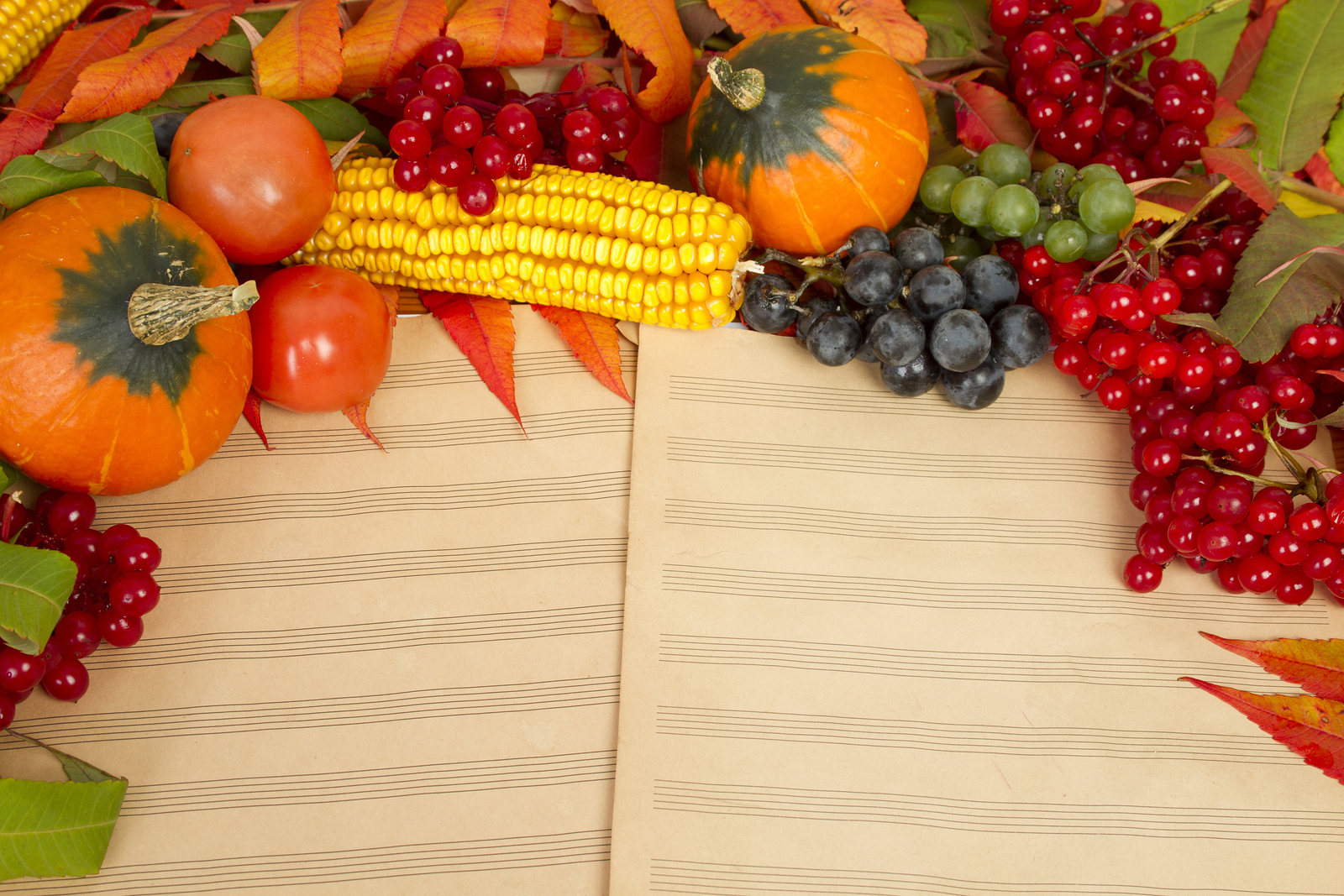
by Ryan Smith | Jan 23, 2018
Everyone is living for a kingdom and a king.
We all have visions of an existence for ourselves and others that describe the way things should be and who should oversee this reality. We fight for, and invest in, those things that encapsulate that vision.
Whether measured in money, power, justice, equality or any number of means, we all secure our hopes to a kingdom that represents the greatest utopia we could imagine. We celebrate it. We yearn for it. We fight for it.
As Christians, we claim to be citizens of a Kingdom both already and not yet fully realized. In that case, our lives should display a picture of Christ’s Kingdom as we yearn and wait while exiled from our eternal home. We should celebrate, yearn for and fight for it.
But author and philosopher James K.A. Smith says, “While being human means we can’t not love something ultimate – some version of the kingdom – it doesn’t mean we necessarily love the right things, or the true King. God has created us for himself and our hearts are designed to find their end in him, yet many spend their days restlessly craving rival gods, frenetically pursuing rival kingdoms.”
So how do we know if we are pursuing rival kingdoms – even in the name of the one true King?
Try this: list a few things that you love. Not just like you love Braum’s ice cream or the Thunder, but what you truly desire, sacrifice for, invest yourself in; what pulls at your soul, what you celebrate, what you love.
Then follow that love to where it naturally finds its end. What do you discover?
Often we discover our loves follow this pattern:
I love _______ because it ___________ me.
I love social media because it entertains me.
I love my spouse because they care for me.
I love my friends because they bring happiness to me.
I love my church because the music and preaching are pleasing to me.
In these scenarios, we see our loves are serving what is displayed as our ultimate end – ourselves. The end of our desires is a kingdom of our preference and choosing. It is our kingdom, and we are the kings.
But for the Christian truly living for the Kingdom of God, all our loves should find their end in the Kingdom of God. To be a Christian, in fact, is to surrender ourselves to a true King and His Kingdom.
Therefore our loves should follow this pattern:
I love __________ because it __________________ the kingdom of God.
I love the Bible because it tells of the kingdom of God.
I love the path of righteousness because it is the pathway to the kingdom of God.
I love songs of truth because they also echo and fill the kingdom of God.
I love suffering because it detaches me from this world and reminds me to keep my eyes on my home in the true kingdom of God.
I love the local church because it is a microcosm of the kingdom of God.
I love marriage because it is a reflection of the King and his people in the kingdom of God.
Like a mountain climber who tethers his rope to the most solid object he can find, we also tether the cables of our heart to that which we believe is most able to hold our very selves. We trust it. It becomes our hope.
Yet only one kingdom will be fully realized after all others are burned in the refining fire of time and it won’t be mine.
For each of us, it is important that we take time to consider the trajectories of our hearts. These trajectories will be evidenced by the investment of our time, thought life, energy, resources and habits.
Have you laid down your desire for any kingdom but God’s? Do you live for a kingdom where God is King or you are king? Would you be willing to consider your loves and discern what kingdom they are tethered to?
Matt. 6:10 – “Your kingdom come, your will be done, on earth as it is in heaven.”
2 Peter 1:10-11 – “Therefore, brothers, be all the more diligent to confirm your calling and election, for if you practice these qualities you will never fall. For in this way there will be richly provided for you an entrance into the eternal kingdom of our Lord and Savior Jesus Christ.”

by Ryan Smith | Jan 3, 2018
‘Tis the season, as they say. We have turned the page on 2017 and look with bright hope toward the beginning of 2018 as the holiday season fades into history like leftover slices of fruitcake.
As recent weeks have attested, one of the telltale signs that a year’s end has drawn nigh is that a host of people you’ve never heard of (and didn’t ask) are telling you their top books, articles, news stories, or cat videos of the year as a means not only to compel you to investigate them on your own, but to remind you there was much to be thankful for over the past twelve months.
While there was much to be forgotten about 2017, the year brought us a litany of literary works we would do well to revisit in the new year.
If you missed some of these titles during the calendar year, don’t fret. Books have no expiration date. Several of these titles have already found their way onto many people’s lists, but I include them in mine as a means to further encourage readers to take up these books, and as a means to reinforce their value to the Christian community.
So whether you are a compulsive reader or simply someone who enjoys the occasional page-turner, I present to you in no particular order, Ryan Smith’s Authorized and Unsolicited Best Books Compilation of the Year (RSAUBBCY™ 2017 Edition).
This is Our Time – Trevin Wax
I’ll go ahead and get this one out of the way. I say that because this book has graced the top of many 2017 lists – and for good reason. Trevin Wax has provided the church not only with an outstanding resource for understanding our day and age, but an excellent apologetic for how the gospel is poised to answer many questions of our time.
By exploring and explaining much of our cultural predicament, Trevin Wax ultimately has written a book on worship and the dangers of misplaced adoration. This book is a great resource for small group discussion or personal reflection.
Martin Luther – Eric Metaxas
Since 2017 was the 500-year anniversary of Martin Luther’s 95 theses, it seemed natural for many works on Luther and the reformation to be introduced. In my opinion, this is the best.
Drawing on the success of previous biographies about Christians in the public sphere (Dietrich Bonhoeffer, William Wilberforce), Metaxas has proven to be not only a thorough and articulate historian, but a compelling author as well. No matter your degree of familiarity with church history or Luther himself, you will find this to be a worthwhile introduction to many doctrinal and methodological church distinctives we often take for granted today.
But What If We’re Wrong? – Chuck Klosterman
Truth: this book did not come out in 2017. You may think that makes its inclusion on this list null and void. However, Klosterman did release a book called X: A Highly Specific, Defiantly Incomplete History of the Early 21st Century this year which reminded me how much I enjoyed this specific book from a previous year. Also, it’s my list, so I get to make the rules.
Chuck Klosterman is not a professing Christian. At times, his topic choice and word selection make this apparent. What Klosterman is, however, is one of the greatest pop-culture writers of our time. What makes him great is not only his contemplative writing approach, and ability to wield humor like a well-sharpened sword, but his ability to see beneath the surface of such trivial cultural tides and explore the great depths of truth beneath.
But What If We’re Wrong? is one of the most refreshing books I have ever read. Extending from the observation that historically many of an era’s most strongly held beliefs turn out to be wrong when tested by the mettle of time, Klosterman interviews some of today’s most intellectual and authoritative minds regarding a wide variety of accepted subjects and asks them simply, But What If We’re Wrong?
What are the things we accept as fact today that generations from now will look back on as folly (do you really believe in gravity)? In today’s society of stubborn objectivity and staunch hubris regarding our own intellectual triumphs, hearing someone admit there are likely things we are missing is refreshing. Klosterman’s writing is fun, engaging, and presents many cultural points of engagement where a wall of error may in truth be open to the gospel in days to come.
Steal Away Home – Matt Carter & Aaron Ivey
This is a real story about real people that isn’t real. Make sense? Matt Carter and Aaron Ivey sought to bring the historical relationship between Charles Spurgeon, the 19th century British prince of preachers, and Thomas Johnson, an American slave trying to discover meaning and faith in a new world, to light in an approachable and compelling way.
This real-life work of fiction uses letters, manuscripts, and historical accounts to meticulously weave a story that is both gut-wrenchingly honest, and filled with a hope and appreciation for the God who unites these two must unlikely of brothers. This was the most enjoyable book I read all year on a number of levels.
Reading the Bible Supernaturally – John Piper
Reading John Piper can sometimes feel like trying to do basic math in Japanese. The words and concepts are all there, but there is a complexity and gravity that causes you to proceed slowly and cautiously lest you find yourself lost and having to start over.
Reading the Bible Supernaturally is a companion piece to one of Piper’s previous offerings, A Peculiar Glory. The strength of this book as that its goal is very simple: Piper wants you to be in magisterial awe of the Holy Spirit inspired Scriptures and the way they function in the life of the believer.
Piper knows this is a lofty pursuit. He spends much of the book continually retelling what he has just said and explaining what he is going to say next. He leads easily and practically by the hand, but still after reading the book, one finds that only a slice has been digested. That’s okay. What this book will help you do is interact with the Scriptures (and the God who gave them) on a new level and with deeper joy.
ESV Reader’s Bible, Six-Volume Set – Crossway Publishers
Nothing has had a greater impact on my personal appreciation for the Scriptures this past year than reading them in a reader’s Bible. Often, trying to approach the words of Scripture surrounded by footnotes, cross-references, chapter markers, study notes, and other helps, can make a text seem unapproachable or even overwhelming.
Reading the Scriptures simply as they were presented – as letters, historical accounts, works of poetry – gives the reader an appreciation not only for the words themselves, but for the story of the gospel and the God who has gifted us so abundantly with His Word.
Study notes and resources are incredibly valuable. But I would also encourage any Bible reader to sit down with a reader’s Bible and take in the Scripture without divisions, markers, or other intrusions. Simply read the books. ESV’s 6-volume reader’s set is somewhat pricey, but well worth the investment.
The Vanishing American Adult – Ben Sasse
Ben Sasse gives me hope for the future of America. The young senator from Nebraska not only has an impressive resume, but his Christian faith and biblical acumen provide a worldview with which many in our nation agree, yet have been unable to articulate.
Though Sasse is a politician, this is not a political book. It is not a partisan manifesto or a posturing senatorial biography. It is a cultural observation piece through the lens of reason, history, and biblical Christianity. Looking closely at education, the Millennial generation, the family, and many other indicators, Sasse puts his finger on the national pulse to expose the fact that not only is our society ill and heading in a dark direction, but optimistically offers hope in the fact that a heartbeat is still there.
Whether you are cynical about our time and nation, or just interested in alternative views of how our society could function and thrive, you will find much to appreciate about this book.
So there you have it: my top seven books of 2017. May the start of 2018 be made more fruitful by adding these and more to our bookshelves, minds, and hearts. I look forward to what 2018 will bring and with it, another installment of Ryan Smith’s Authorized and Unsolicited Best Books Compilation of the Year (RSAUBBCY™ 2018 Edition).

by Ryan Smith | Dec 26, 2017
What is Boxing Day?
To many of us (read: Americans), Boxing Day is simply that strange day on the calendar for Canadians.
When I think of Boxing Day, it always evokes images of two 1920s-era men with carefully sculpted mustaches and high-wasted pants standing with fists raised in preparation to engage in fisticuffs. (That’s a holiday I would gladly celebrate, by the way.)
Truth be told, most of us don’t know why Boxing Day exists, and even fewer of us have asked ourselves whether or not we should observe the holiday.
So why is Boxing Day celebrated and should we, particularly as Christians, consider adding this day to our already well-stocked holiday calendar?
Boxing Day (Dec. 26) is a day to remember those who go largely unnoticed throughout the year. It is a day for the people in our lives we see daily, yet rarely take the time to thank.
Tracing the origins of Boxing Day can be somewhat difficult. There are many legends, and to what degree any of them hold a kernel of truth is debated. However, what we do know is that Boxing Day has been celebrated for hundreds of years as a means to do something few of us think about doing during the holidays: giving back.
Traditionally on this day, a small box or gift is given as a means of appreciation to those in our lives who make our days run. It is a way to not only express gratitude, but it is a means of acknowledgement. It’s a simple way of saying:
Thank you for even the small things you do and the way you do them.
You matter to me.
The postal worker who brings the mail, the waste management professional who weekly clears away our trash, the smiler at the bank, the barista at the coffee shop who always remembers our order – all of these people give the smallest of joys and encouragements to us each and every day, yet we rarely consider bringing joy and encouragement to them.
After all, that’s what they’re there for, right? They exist to serve us…
Boxing Day is a day for us to serve them.
For some, Boxing Day has become a day to provide for the less fortunate out of our over-abundance. It is a way of contributing out of our wealth (however small it may be) to provide for those who have even less.
Especially after Christmas, a season when we amass more food, stuff, and trinkets than we can fit in the family SUV, it would do us well to intentionally turn our focus from our possessions and ourselves to others and their needs.
If we got the new iPhone, could someone else benefit from our current phone? If we got that new pair of shoes, is there someone who would gladly receive our old pair? Instead of three weeks of leftovers, would someone else receive this food as a blessing?
This year, what if we decided to give one item away from our current stock for every new Christmas item we receive?
What if every family member picked someone who blesses our family by simply doing their job and thought of how we could bless them?
Simple questions like these may not change the world, but they may re-orient the way we and our families think about the materialistic aspect of Christmas. It may help us turn our attention toward the needs of others and in some small way, make us both thankful and grateful.
Boxing Day. It seems like a strange holiday, but I believe it is something we should consider.
Let this year be the year we think most of those who are considered least.

by Ryan Smith | Dec 5, 2017
“What is sex?”
If you were to ask this question to 100 different people on the street, you would likely get 100 different answers (and a lot of strange stares).
Sex has become both commodity and identity in today’s culture. It is considered merely physical, yet almost otherworldly metaphysical. It has been reduced to merely a casual function, yet also expanded to hold the greatest levels of prominence and achievement.
What is sex? To look at what our culture proclaims, and our society embodies, we would have to say… we don’t know.
Beginning in the mid-20th century, sex was defined as the key to freedom. No longer was sex to be considered a taboo subject or held within any kind of relational confines. Sex was up to the individual as an expression solely of what that individual wanted sex to be – as long as no one got hurt.
But did no one get hurt?
Looking back over the past 50 plus years of The Sexual Revolution, one can certainly see that once out of its cage, the animal grew exponentially and in ways previously unforeseen. In some ways this was good. Rather than being treated as a monster, sex was seen as what it is – a gift (though without a recognized Giver).
Sadly, however, not all of the implications were this innocent. Sex-related content has become more accessible than ever and is now the go-to marketing strategy for everything from clothing to hamburgers. Even the colossal kid-friendly Macy’s Thanksgiving Day Parade balloons are now backlit by scantily clad women on a not-so-subtle Victoria’s Secret billboard.
We have built the idol of sex exceedingly tall, lit it extravagantly, and grown used to its form.
The Sexual Revolution sought to set the “caged” animal free. But as any pet-owner will tell you, without a fence, an animal is actually in more danger not only from predators, but from itself. Freedom, in many ways, can lead to an even greater kind of slavery.
Sex has sold, but what have we bought?
We continue to produce mass-market media that utilizes women as objects, skin as the almighty attention-holder, and carefree sexual advances resulting in consequence-free consensual relations.
We have a culture of look, but don’t touch; touch, but don’t hurt; hurt, but don’t care; care, but don’t take responsibility.
With sexual scandals becoming the norm in newspaper headlines and social media feeds, we are starting to see a pattern. A light shining so bright on such a gargantuan idol has produced a great shadow – and much is being done in that dark.
Issues of sexual misconduct, predatory acts, harassment and addiction are being revealed at a dizzying rate. From sports arenas to the halls of government, late night talk show hosts to early morning family-friendly journalists, it seems the shadow of the sexual revolution’s idol is leaving less places to hide as the light reaches its pinnacle. In a world with no fence, we sense something is not being protected.
Ex-porn stars are turning the tide against the multi-billion dollar industry exposing its predatory debasing of women, unsafe practices and life-altering effects of addiction. Science proves and displays the humanity of the unwanted pre-born. Poverty-stricken areas are marked by the uncommon number of single-parent families (particularly from male-abandonment) resulting from what was sold as consequence and carefree sex.
The Sexual Revolution is hitting a wall. It is being exposed, and what the light is revealing is quite telling.
The Bible’s ancient refrain is that seeing something as pleasant to the eye, good to the taste and supposed to make one wise is not always what it seems (Gen. 3:6).
From a Christian worldview, we understand the Bible says that God gave sex to be a good and beautiful expression of love within the covenant bonds of marriage between one man and one woman for life. That is not only what the Bible says; that is the plumb line with which it corrects every deviation.
Sex has boundaries. Those boundaries are not to keep people out and oppressed, rather to be rightly included and flourishing for God’s glory and their good.
Sex is a beautiful animal, but it needs a fence. Something is worth protecting.
With every scandal and vicious malpractice of sexual conduct that comes to light, the alarm resounds, “Sex and sexuality are important!” Sex is not our toy. It is God’s tool. He gave us the borders of a beautiful garden, and within it, everything flourishes. Outside, it dies.
This is a time for the church to do two things.
First, we need to repent of our own sexual brokenness – all of us. We have used sex for entertainment, swept divorce and adultery under the rug and heeded the call of free sex with our eyes and ears more than we would like to admit. We are wrong, and we need to return to God.
Second, we need to recognize opportunity. In the past, offering ideas such as virginity, celibacy or abstinence until marriage were looked on as foolhardy. Monogamy, perseverance and fidelity were labeled oppressive. Any attempt to deny a sexual impulse was shouted down as psychological tyranny.
But in the acidic wake of a sexual revolution that promised much clarity, yet has delivered more confusion, these ideas are beginning to be seen as more viable and even healthy.
People are beginning to be open to new ideas about sex – even if those ideas turn out to be age-old wisdom.
More sexual scandals will unfold, and we should wrap our arms around those who bravely expose with light what is carried out in the shadows. Let us be consistent in upholding God’s gift of sex within the garden of marriage between complementary man and woman for life. Let us fill our minds and eyes with what is good, pleasing, right and true.
In so doing, may a broken world whose well is running dry be guided to the source of living water. Like the woman at the well (John 4), may our society find honest truth, gentle compassion, and an invitation to hope in Jesus Christ.
Is this the end of The Sexual Revolution? Maybe.
Perhaps it’s the beginning of something much greater.

by Ryan Smith | Nov 22, 2017
There is a song that echoes throughout the Old Testament. It rings out from Genesis, repeats in the historical books of Chronicles, crescendos in the Psalms, and reprises in the prophets.
It is a simple song with a simple refrain:
“His steadfast love endures forever.”
The culmination of this resounding chorus is Psalm 136, which begins with these words:
“Give thanks to the LORD, for he is good,
For his steadfast love endures forever.
Give thanks to the God of gods,
For his steadfast love endures forever.
Give thanks to the Lord of lords,
For his steadfast love endures forever;
To him who alone does great wonders,
For his steadfast love endures forever;”
The psalm goes on to recount God’s magnificent and sovereign hand in creation. It rehearses and reminds of God’s salvation of the Hebrew people from Egypt through the Passover and their walk of faith through the Red Sea.
It continues to recount God’s faithful steps as He led his people to the Promised Land – overthrowing kings and providing a heritage for His people, Israel.
With every verse, every remembrance, and every word of thanksgiving, the refrain is repeated: “For his steadfast love endures forever.”
The Psalm concludes:
“Give thanks to the God of heaven, for his steadfast love endures forever.”
As we approach Thanksgiving, and try to steady our gaze amidst the siren calls to move past the season of pause towards greater deals on electronics and big red bows on Lexuses, may Psalm 136 serve as a guide for us.
This Thanksgiving, as you sit at your table with friends and family, when you sit alone in the quiet with the Word of God, in the moments both together and apart, let us recount who God is. Let us remember His good and sovereign hand in a world where goodness seems only like a memory. Let us remember where He has taken us and what He has performed in the past to show us He will be faithful in the future. Let us remember Christ, think on the cross, and pray that God would tune our hearts with the righteous leadership of the Holy Spirit.
And with every brief remembrance, every recalled act of His saving grace, with every word of His goodness and truth, let us also repeat the refrain:
“For his steadfast love endures forever.”
Happy Thanksgiving.




